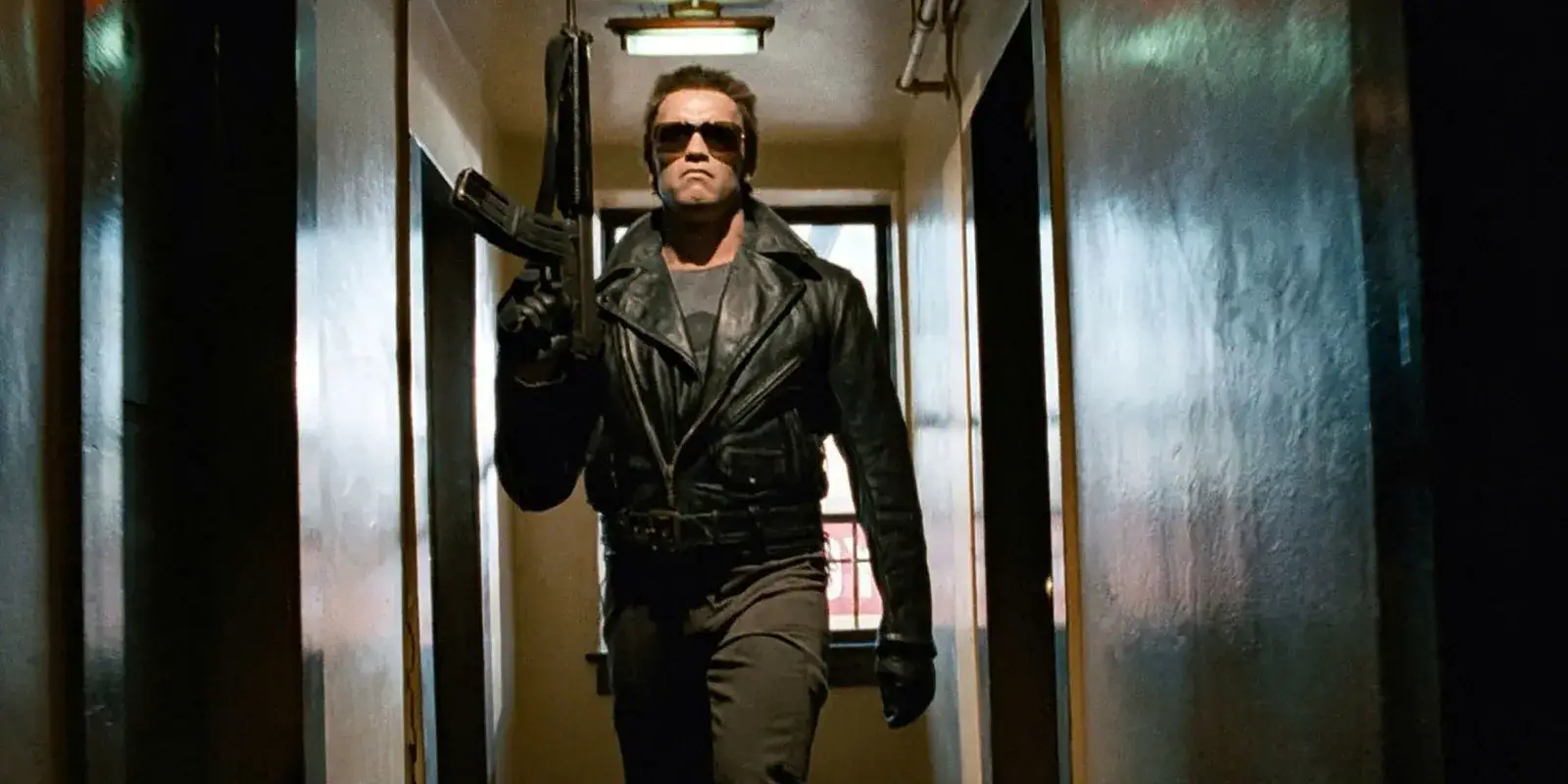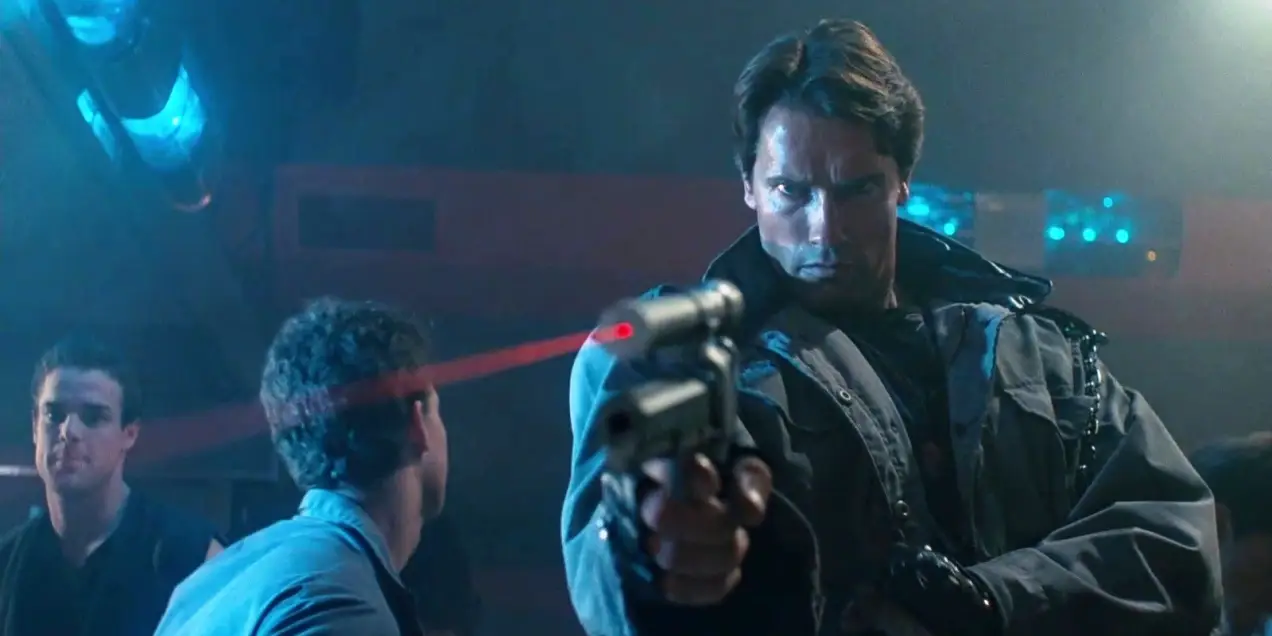40 Years Later And “The Terminator’s” Warning About Technology Feels More Real Today Than Ever Before

In the 1960s, the internet was created as a tool for governments to share information. Fast-forward to the 1980s, when Apple announced the home computer, and everyone would be able to access a new world of information. With rapid technological advancements in computers, phones, weaponry, and machinery, everyday citizens were right to fear what future technology could bring to their doorsteps. With humanity’s penchant for domination and violence, the evolution of technology makes one wonder where the threat of artificial intelligence will take us.
While working on the low-budget thriller “Piranha II: The Spawning,” James Cameron experienced a flu-induced nightmare: a metallic skeleton with burning red eyes and knives for hands emerged in flames as if it had come from hell. After waking up, Cameron set out to create a slasher for the technological era. The manifestations brought forth from the haze of fever would become “The Terminator”: a time-traveling epic starring a killer machine from the future, the T-1000, played by Arnold Schwarzenegger. The Terminator lumbers towards his targets; he is hunting, and Los Angeles is his playground. He’s tasked with eliminating Sarah Connor, a woman pregnant with humanity’s resistance leader. Also, a time-traveling resistance fighter, Kyle Reese, is sent back in time to protect Sarah and save the future. It’s a techno-thriller combined with a cat-and-mouse chase. “The Terminator” is an action-packed ride that never lets up, constantly keeping audiences in suspense until the credits roll.
The Terminator came to the past with little information, only his target’s name and her general location, making his pursuit callus with little regard for those caught in his crosshairs. Drawing inspiration from slasher films such as John Carpenter’s “Halloween,” Cameron demonstrates the brutality of machinery in the unequal battle between man and machine. The T-1000 dismisses its foes with a glance, disarming them with cold efficacy. After raiding a gun shop, he quickly kills the owner. After all, he’s hunting and will need bigger toys. As the smoke fades and the shot punches in, the stark violence of this machine is obvious. It’s not enough to shoot the man once; it must ensure that no witness is left alive. With systematic execution and shocking efficiency, the Terminator is a threat never before seen. His enemies will never measure up; all fights are unequal. Schwarzenegger’s physicality brings a sense of invincibility that hammers home technology’s threat. Victims crawl away as time slows down and bullet casings fly into them. With Connor serving as a mirror for the audience, going on about their day not fully conscious of the looming threat of the fall of man, audiences easily envision themselves trapped in the Terminator’s wreckage.

Cameron was right to fear how our need for advancement may cause the end of humanity. After all, with the near-constant presence of AI dominating every aspect of society and billions being poured into the development of weapons of war, is it far off to fear the creation of a sentient weapon? Cameron’s Terminator embodies this possibility: he is a gun that can walk and talk, a physical embodiment of America’s less-than-savory gun culture. To have this killing machine hunt and stalk people in an animalistic way devoid of emotion was extremely unique and clever. With the looming threat of a future torn apart by its overseer of a mega tech company, how can humanity overcome its weapons by turning on them? Skynet utilizes the nuclear armament of The United States and Russia to cause a change reaction, leading to a desolate earth, a utopia for machines. There’s a doomsday clock ticking in the background for anyone who stops to hear it.
The Terminator made audiences question what good over-reliance on technology will do to us. What will become of humanity as we eagerly replace humanity with machinery? The Terminator brings to life the hostile takeover of machinery by showing the world what we risk losing. Of course, artificial intelligence has no soul, replacing morality with cold, unfeeling efficacy. With computers, phones, weaponry, and machinery, everyday citizens are right to fear what rapid technological advancements could bring to their doorsteps. With threats facing their livelihoods to their government, which is to say that technological evolution is without faults?
Forty years later, “The Terminator” feels more relevant than ever. AI is on the rise, and nuclear weapons remain an ever-present threat. The growth of the internet alongside this technology can trap people within their information pools. Humanity is becoming more and more fractured. As these threats grow at an accelerated rate, it is not hard to see how, even though fictional, technology has led to a confused landscape in which people have to be skeptical of everything they read, see, or hear because the wealthy want to reduce jobs they devalue.
Cutting the soul from every aspect of our society should terrify us all with technology, and AI is being used as a shortcut. What will happen as we remove rational thought and human decision-making within the never-ending war economy? AI can not think and cannot make decisions. Ripping humanity from tech may set a chain reaction from which our world and humanity can never recover when people continue not to question the implications of certain technologies and the way they can become weaponized. “The Terminator” could become more than fiction. It could represent the world we are heading into instead of becoming a cautionary tale. “The Terminator” takes the emergence of new technology of the time and amplifies it, showing that if we continue to lose our humanity, we could find ourselves within a technological slasher of our own making.

熱門頭條新聞
- The CES® 2025
- ENEMY INCOMING! BASE-BUILDER TOWER DEFENSE TITLE ‘BLOCK FORTRESS 2’ ANNOUNCED FOR STEAM
- Millions of Germans look forward to Christmas events in games
- Enter A New Era of Urban Open World RPG with ANANTA
- How will multimodal AI change the world?
- Moana 2
- AI in the Workplace
- Challenging Amazon: Walmart’s Vision for the Future of Subscription Streaming
